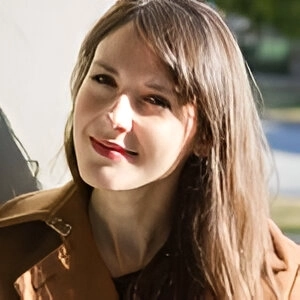In 2003, when Norbert Riethof launched Coaching Systems, the concept of coaching as a professional venture was still emerging. Despite initial skepticism about the viability of a business focused solely on coaching, Riethof persevered.
Over the past two decades, the coaching landscape in the Czech Republic has transformed dramatically. Today, Riethof's platform has seen remarkable growth, reflecting the increasing interest and value placed in the coaching field. Instead of skepticism, he is often asked about the specific types of coaching he offers, highlighting the evolution from a niche market to a diverse and sought-after professional field.
Coaching Systems’ Academy of Coaching Excellence (ACE) uses one-on-one coaching and supervision, coach training, and personality inventories like the Myers-Briggs Type Indicator to train individuals in the fundamentals of a coaching practice in both Czech and English. What results, as Riethof describes it, is a sort of Goldilocks effect: a program that is not too broad, not too narrow, but practically applicable for wannabe coaches of all walks of life.
Coaching Systems’ clients include managers and other professionals who want to become more skilled leaders as well as people who are ready to make a shift into coaching as a career.
“People use coaching now for top-executive development—we do a lot of executive coaching for leadership teams—but also for individual development,” Riethof says. Coaching Systems also works with companies to train employees in topics such as effective communication, stress and emotional management, and burnout prevention. “These topics are more and more commonly sought after, especially after Covid,” he notes.
Riethof, who holds a PhD in psychology, dates his interest in coaching back to the late 1990s, when he was working for the American employee-development training organization AchieveGlobal. The company provided its employees with continuous training in leadership and management, and Riethof recalls that after each training program ended, employees at the company worked with coaches who would follow up on their progress and help reinforce the skills they’d learned.
At the time, AchieveGlobal’s methodology “was very new, not only here, but in other parts of the world,” Riethof says. The American approach was much more individualized than anything he’d encountered in Central Europe, and he recalls benefiting greatly from coaching sessions with the company’s vice president.
But the individualized approach also stood in stark contrast to Riethof’s experience of the Czech education system.
“It was more about, like, ‘I give you the information, you have to learn it, then I will come and check your knowledge,’” Riethof says of the latter. “No discussion. Nobody was interested in how people see things.”
It wasn’t just that professionals didn’t have the opportunity to express their individuality—it was that they had never been encouraged to do so, even as schoolchildren. “This unfortunate approach persists at some schools even today,” Riethof says.
Coaching, Riethof explains, “is more about asking questions, starting to initiate your own thoughts, starting to initiate your own ways to grasp concepts or know-how and turn it into something practical.”
When he and his business partner Robert Demare launched Coaching Systems in 2003, targeting workplace training and development leaders, the company offered a radical departure from the staid, impersonal relationship most local organizations and managers maintained with their employees.
In a country in the midst of rapid political transformation and where mental healthcare was still stigmatized, Coaching Systems sought to provide a middle road between friendly counsel and psychotherapy.
“If you have a small issue, you can discuss it with your friend over a coffee or a glass of wine or something, and maybe that’s good, that’s enough,” Riethof says. “You just need to have somebody to talk to. Then you might have a big issue, which you should go to a psychotherapist or psychiatrist to solve. But there’s this whole zone of things in the middle, right?” He continues, “I think this whole area is very suitable for coaching to address.”

Today, that gap has grown wider than ever, Riethof says. There’s more demand for coaching and coach training than ever before, thanks to increased interest from clients—and from prospective coaches.
“The newest generation—they demand to be doing jobs and in an environment that is in line with their values,” Riethof said. “That is meaningful. That is good for ecology. That is respectful. So I think that's becoming more and more important on an individual basis, but also on the organizational and societal levels.”
Try it for yourself - join our free demo session
Would you like to experience coaching for yourself? Leave your details below and we'll send you the dates for our next demonstration session, where you can experience breakthroughs that challenge your thinking, resulting in remarkable changes in leadership, relationships and quality of life. An experience you will never forget!
This article was written in association with Coaching Systems. To read more about our partner content policies see here.












 Reading time: 4 minutes
Reading time: 4 minutes 






















